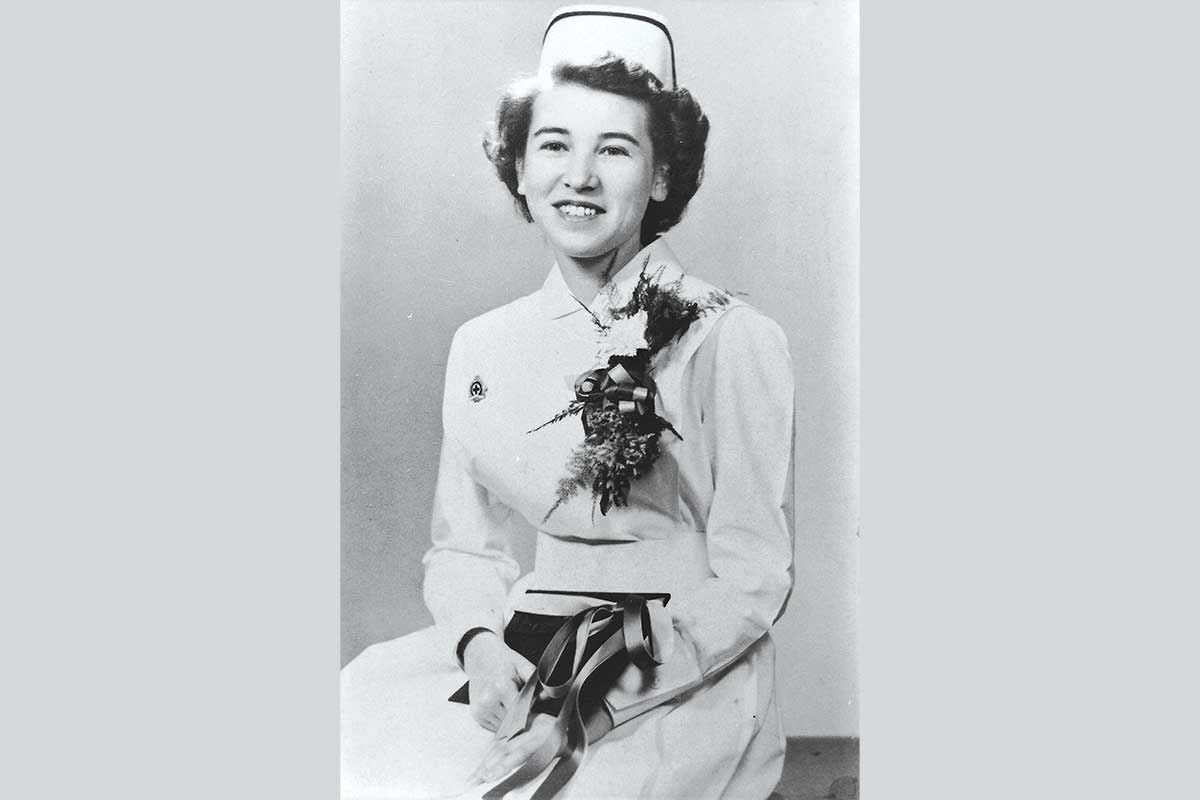First, I wish to acknowledge that I write to you from a place of great privilege; I have had the benefit of walking through life viewed by all as a white man and with all the benefits that entails. That is not, however, my whole story. The part of my story which cannot be read on my skin or in the colour of my eyes is the intentional erasure of part of my heritage by those who held power. I am evidence of the effectiveness of long standing government policies of assimilation and taught shame.
My mother was born at Separartion Point, Sandwich Bay, Labrador. Her mother died when she was nine, after which she and her brothers were moved to the Grenfell Orphanage in Cartwright. She then went on to the Orphanage in St. Anthony and from there to the Grace School of Nursing in St. John’s where she graduated in 1951, the valedictorian of her class.
I was an adult before I learned that she had been class valedictorian. When I brought it up to her she seemed startled and looked at me with deep sorrow in her eyes. “After it was announced” she said, “two of the ‘girls’ passed me in the corridor and said “So they got the little ‘skimo’ to be valedictorian.”
She turned away and the conversation was over.
What, for most, might have been a moment of pride was instead, for my mother, an open wound. When my brother and I were young children, knowing we had family in Labrador we once asked “Are we Indians?” The answer was a very firm “NO, WE ARE NOT!” Again the conversation had ended.
Mom was a “success” of the system, and while she became a deeply compassionate and competent nurse, she carried the profound shame and scar of being labelled and named ‘skimo’, the rest of her life. Only in later years did she begin to reclaim pride in her aboriginal heritage.
Ancestry.com tells me that I have 8% Native American ancestry but I have only the most nebulous connection with that heritage. There is a whole history spanning generations to which I belong, but from which I was intentionally distanced by a racist system. I wonder how many Newfoundlanders and Labradoreans, how many Canadians; how many of us are the likewise ‘success stories’ of the genocide that successfully killed the indigenous heritage of our families, in our souls.
Let us not be mistaken however to believe that this ‘gentle’ transformation of the ‘skimo’ to the successful nurse tells the story of this genocide. This genocide was not merely carried out through well intentioned “educating“and “civilizing” efforts. This genocide was and is violent and brutal and cold-hearted.
The stories of the countless unmarked graves of children call out to us. These are the martyrs of a system which has advantaged many of us even as we either rejected or were unaware of our own heritage.
Those of us whose heritage is all but lost must humbly stand in solidarity with those who held on, sometimes tenuously always bravely, to their culture to affirm that the genocide was not successful and will never be successful. We need to stand with those who held firm and are reclaiming their indigenous heritage in naming and actively working against the systems in which this genocide continues in our own times.
We need to learn of our own family’s indigenous heritage, to support Friendship Centres, to demand that our Church and Governments implement the recommendations of the TRC. In consultation with Inuit, First Nations and Metis peoples we need to better fund social programs, education and language training. We need to stop tempering our willingness to act to self-imposed financial constraints and financial self-interest. Rather we need to see reparations and reconciliation as a moral imperative.
The Christ whom we claim to serve would expect no less.



